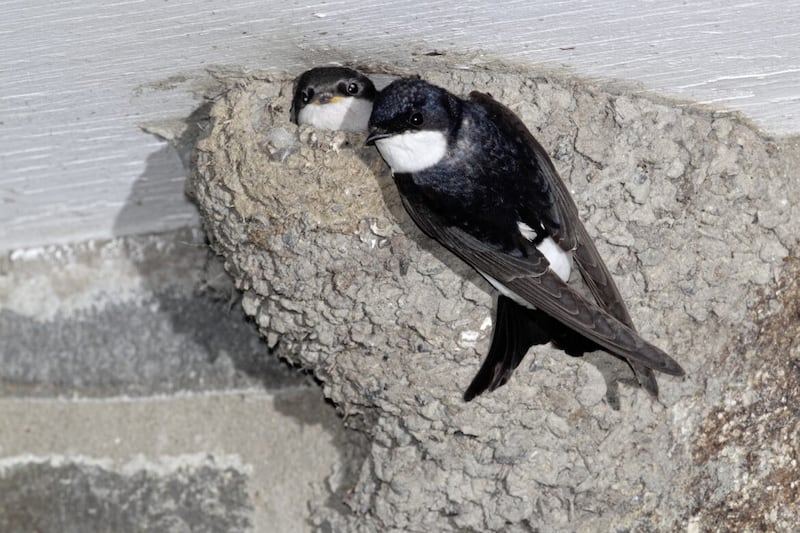THE shuffling and cackling sounds which greet me at my back door tell of summer's waning.
Rowan tree boughs, heavily laden with thick clusters of bright red berries, bring many birds there to feast. This sacred tree of the Druids generously offers its nutritious crop to blackbird, thrush and, this year, bullfinch.
Later, these birds will disperse seed to start off a new generation of 'fid na ndruad', but for now, their rustlings provide welcome company. Luscious red berries are also forming from twining stems of honeysuckle, soon to be enjoyed by passing coal and bluetits.
Meanwhile, the nights are closing in, as beech leaves toughen with summer's fading glow and Lughnasadh calls in the first fruits of the harvest.
In recent days, I've also noticed swallows and house martins jointly swoop and dive, chasing with intensity insects which will nourish them and their offspring for the long journey to Africa in the weeks to follow.
House martins, humble relatives of fellow summer migrants, swallows, have blue-black upperparts, white underparts, and short forked tails. In flight, they show a distinctive white rump absent from both swallow and another relative, the sand martin.
Like the swallow, house martins assemble a nest by piecing together small pellets of damp mud and straw, usually attached under the eaves of a house – a construction Gilbert White, naturalist and Pastor described as "a sort of rustic work full of knobs and protuberances on the outside" (The Natural History of Selborne 1789).
Read more:
Take on Nature: On the Wild Atlantic Way
Take on Nature: A warm welcome awaits the magnificent birds of prey
Take on Nature: When darkness falls, do not fear the common pipistrelle

If the nest is spared from human hand, two or three broods may be raised during a season extending into September or October. Cliff and cave nesters originally, the house martin's modern name came from its regular use of man-made buildings, evident in Shakespeare's Macbeth when Banquo talks of the bird nesting at the Scottish noble's castle in Inverness, saying:
This guest of summer,
The temple-haunting martlet, does approve,
By his loved mansionry, that the heaven's breath
Smell's wooingly here: no jutty, frieze,
Buttress, nor coign of vantage, but this bird
Hath made his pendant bed and procreant cradle
Unfortunately, in modern times, many discourage them from nesting because of the mess droppings can cause, especially if a nest is directly above a door or window which might be opened.
Early naturalists and observers were always puzzled about where martins and swallows disappeared in winter, some believing they moved to live on the moon. In the poem Saturday; or, the Flights (1773), John Gay wrote that the moon was "where swallows in winter's season jeep".

However, in his Historia animalium (fourth century BC), Greek philosopher Aristotle noted his belief that at least some of the birds hibernated, writing that they had been found "in hollow places", like tree holes.
Over the centuries, similar theories were advanced, like that of 16th century Swedish archbishop, Olaus Magnus, who went further, claiming they hibernated underwater, plunging below, remaining there under mud until the following spring.
Gilbert White also believed that martins and swallows hibernated during winter in burrows or in lake bottoms. With the passage of time, proper bird monitoring and observation finally proved that martins, swallows, and swifts did migrate south for the winter.
As with swallows, house martins were usually associated with good luck, but it was considered unlucky to kill either of them or destroy their nests, as bad fortune would follow. Anderson (Birds of Ireland, 2008) quotes that, if a martin's nest was damaged, "cows' milk would be tainted with blood", while an old English rhyme stated the "the martin and swallow/were God Almighty's bow and arrow".
Still time to enjoy this summer guest.









